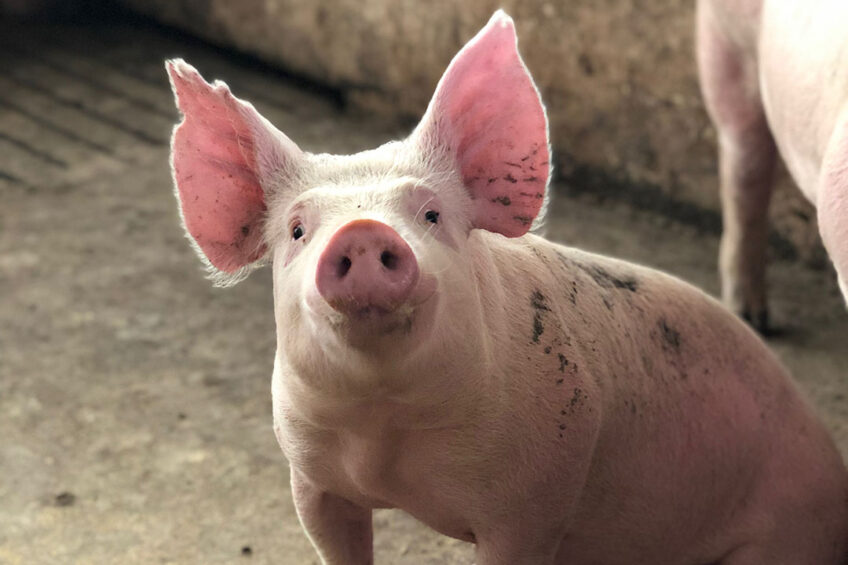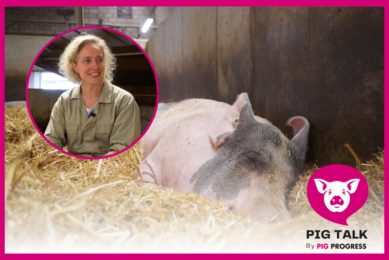Top 6 feed additives to restore pig gut health

Gut health plays an essential role in pig welfare and performance. This article discusses 6 feed additives that improve pig gut health.
The gut microbial population comprises bacteria and other single-celled organisms that inhabit the digestive tracts of pigs. Gut microbiota play an essential role in digestion and fermentation of carbohydrates, production of vitamins, maintenance of gut villi function, modulation of the immune response and protection from pathogenic bacteria. Disturbances in the gut microbial ecosystem when pigs are being reared compromise gut health, welfare and production performance. Thus, it is essential to restore gut microbial balance by providing supplemental feed pre- and post-weaning. This article discusses 6 feed additives that improve pig gut health.
 Prebiotics
Prebiotics
Prebiotics are described as selectively fermented dietary compounds that alter gut microbial composition and activity and cause advantageous physiological impacts on the host. Supplementing prebiotics in pig diets promotes the proliferation and metabolic activity of beneficial microbes and provides a stable microbial ecosystem. Prebiotics enhance the relative abundance of beneficial bacteria including Lactobacillus and reduce the population of potentially harmful bacteria such as Clostridium and Enterobacteriaceae in the gut microbiota of weaning piglets, thus reducing the risk of dysbiosis.
 Probiotics
Probiotics
Probiotics are defined as live microorganisms that can be supplemented in pig diets to restore microbial imbalance by changing the relative abundance of the gut microbial community. There are a wide array of microorganisms that have been promoted and marketed as probiotic food supplements for pigs including Lactobacillus, Bifidobacterium, Enterococcus, and Streptococcus, and yeasts from the genus Saccharomyces. Probiotic supplementation reduces the abundance of pathogenic bacteria such as E. coli, minimises the incidence of diarrhoea, enhances the immune response during infection and increases weight gain.
 Essential oils
Essential oils
Essential oils are a complex mixture of volatile organic compounds obtained from many diverse plants with antimicrobial, antioxidant, anti-inflammatory or antiviral properties. Essential oils are generally considered natural and less toxic compounds compared to other products such as antibiotics. Furthermore, the supplementation of piglet diets with essential oils is associated with an increase in the relative abundance of Lactobacillus and a decrease in the relative abundance of E. coli or total coliforms. Feeding essential oils to nursery pigs improves gut health, enhances feed intake and increases performance and average daily gain within the first few weeks post-weaning.
 Zinc oxide
Zinc oxide
Zinc oxide, an inorganic compound of zinc, is an alternative feed additive with antimicrobial properties at the pharmaceutical level. Zinc oxide effectively suppresses the incidence of post-weaning diarrhoea through its ability to induce oxidative stress by producing reactive oxygen species, which results in bacterial death. In addition, zinc oxide downregulates inflammatory gene expression, thus alleviating weanling-induced gut injury. Other beneficial impacts of zinc oxide supplementation include promoting growth performance, improving gut morphology and permeability, enhancing the gut barrier function, adjusting the structure of gut microbiota and raising the concentration of short-chain fatty acids in the weaned piglets. However, it must be noted that high levels of zinc oxide can negatively impact pig health due to the accumulation of zinc in the liver, pancreas and kidneys.
 Fermentable carbohydrates
Fermentable carbohydrates
Dietary carbohydrates including wheat starch, and beet pulp stimulate microbial fermentation, increase beneficial bacteria in gut microbiota and promote a stable and healthy gut microbial ecosystem. Conventional pig diets are based on cereal grains that naturally contain fermentable carbohydrates, including resistant starch, β-glucans, and hemicellulose. Complex diets that replace wheat with barley increase mucosal microbiota uniformity and piglet growth after weaning.
 Organic acids
Organic acids
Organic acids are broadly dispersed in nature (animal, plant, and microbial sources) and are produced by several fungi, yeasts, and bacteria. Organic acids or simply acidifiers are used as feed additives to replace antibiotic growth promotors. Short and medium-chain organic acids, such as citric, propionic, lactic, and fumaric acids have bacteriostatic and bactericidal effects. Formic acid or its salts increase acetic acid, reduce lactic acid concentrations in both the ileum and colon contents, alter the composition of gut microbiota and modulate microbial fermentations of nutrients or metabolites available to the host. In addition, supplementing organic acids decreases the relative abundance of coliforms and increases the population of Lactobacillus in pig gut microbiota.
Concluding remarks
Gut microbiota are essential for the normal nutritional, physiological and immunological functions of the pig. Disturbance in the microbial ecosystem creates an opportunity for pathogenic organisms to colonise and cause disease. This is why it is critical to apply feed additives including prebiotics, probiotics, essential oils, zinc oxide, fermentable carbohydrates, and organic acids to restore the gut microbial balance.
*References are available on request.











